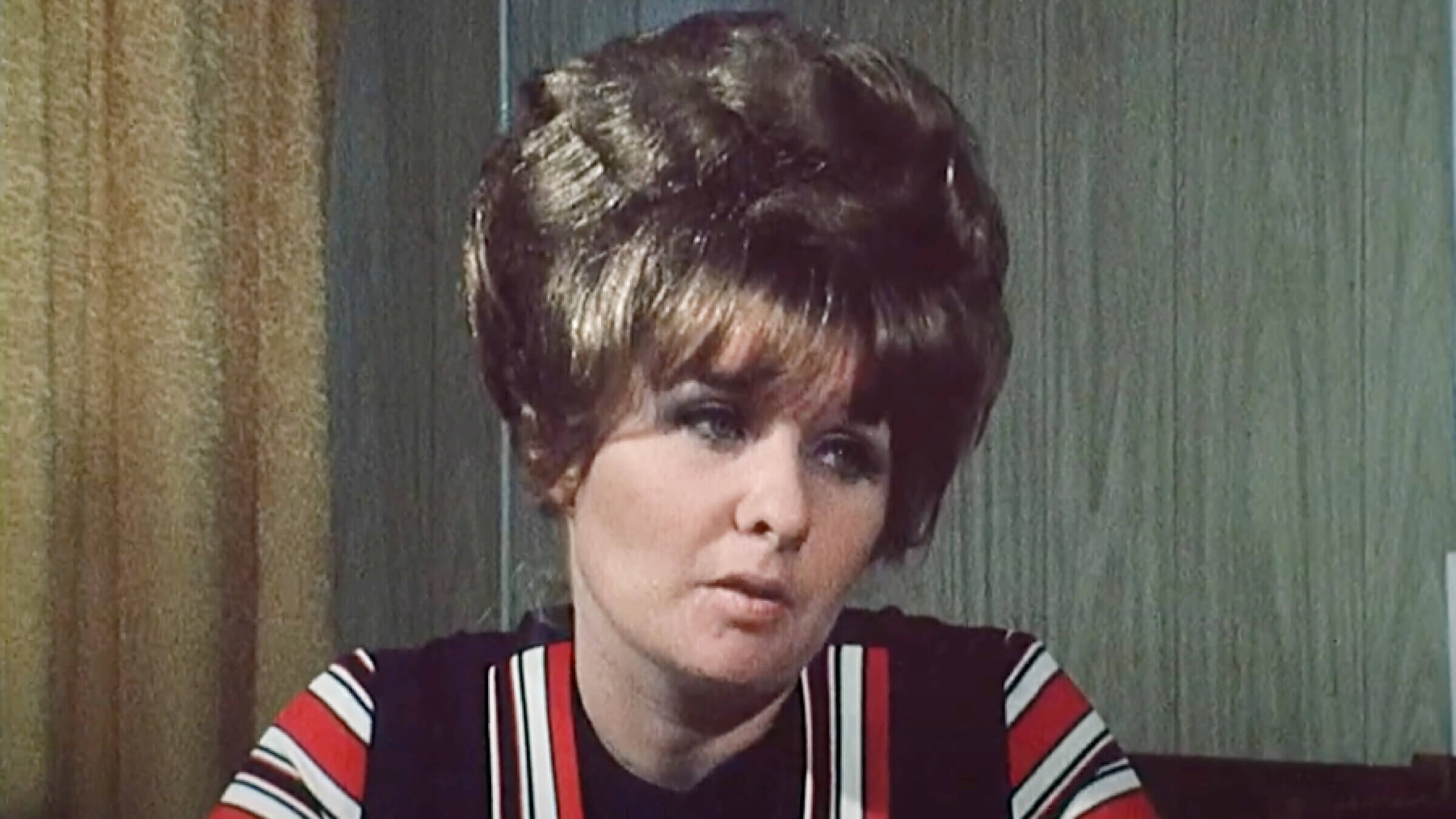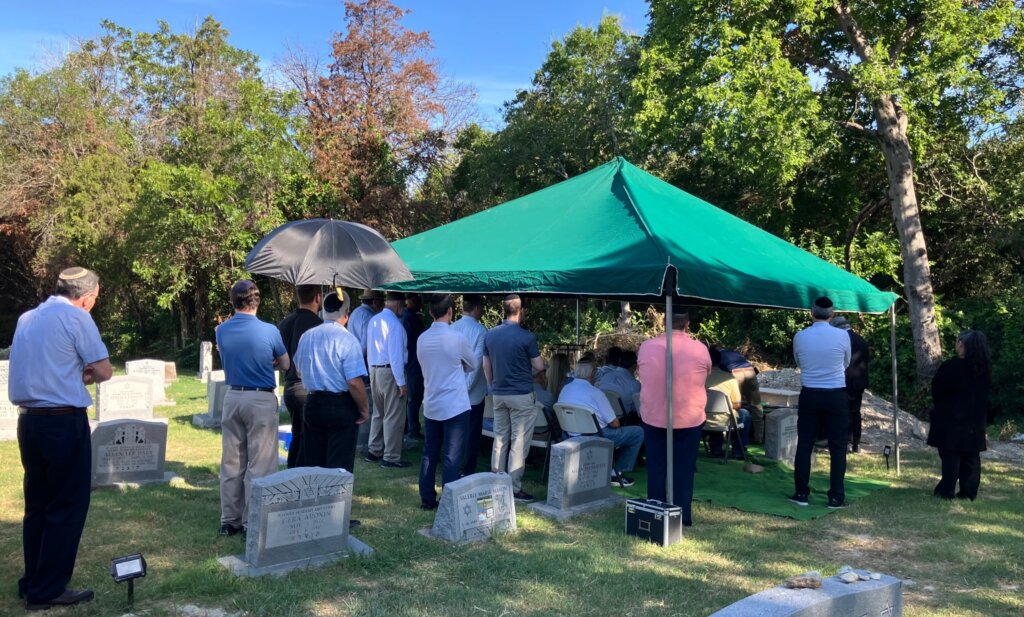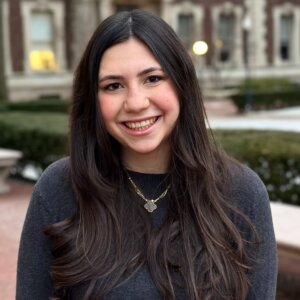A former Dallas city councilwoman just died. Almost no one knew she was Jewish.
Rose Renfroe wanted to be buried as a Jew, her daughter said

It was not widely known that Rose Renfroe, who won a seat on the Dallas City Council in 1975, was Jewish. Courtesy of G. William Jones Film and Video Collection at SMU
It was only after her Jewish funeral Sunday that many in Dallas learned that Rose Renfroe, an upstart in Democratic city politics, was Jewish.
“Rose was forgotten as a Jew for the majority of her life,” said Hannah Lebovits, a member of the Dallas burial society who organized the minyan for the funeral.

Renfroe — or Rose bat Eliezer as the rabbi who officiated called her — had been considered anything but Jewish well before and long after 1975, when, running for Dallas City Council on an anti-busing platform, she beat a seemingly entrenched incumbent.
A local reporter, profiling her after that win, described her as “one of the least pretentious and most genuine politicians I’ve met in years,” but also as the product of a “Baptist upbringing” and graduate of a Dallas Baptist College. Though Renfroe did graduate from a Baptist college, she was the daughter of two Jews. She thought of herself as Jewish too, said her Jewish daughter, Rena Renfroe.
Others likely thought Rose Renfroe was Catholic. She was married to a Catholic man, and many years after losing reelection to the council, ran twice for Dallas County Commission, in 2002 and 2006, under the name “Rosita Renfroe.” Critics accused her of trying to pass herself off as something she wasn’t to appeal to an increasingly Latino electorate. Renfroe responded that “Rosita” was what her husband called her.
She had a plot next to his in a non-Jewish cemetery. But before she could be interred there, Rena Renfroe contacted Jewish Family Services of Greater Dallas and told them her mother had wanted a Jewish burial in a Jewish cemetery. They made that happen.
Rose Renfroe was buried in Dallas’ Tiferet Israel-Agudas Achim Cemetery, a week after she died at 81, and after a chevra kadisha, or burial society, had prepared her body according to Jewish law.
“I thought it was so beautiful,” said Rena Renfroe, 64. “I thought it was the best service I’ve ever been to in my life.”
And it set the record straight, said Lebovits, who is a contributing columnist at the Forward. “It’s really important, especially in Texas, to know that Jewish people have contributed civically to this dominant Christian society.”
She added: “We really need to investigate and think about why Rose spent decades of her life not being publicly Jewish.”
Who was Rose Renfroe?
Beri Kaplan Schwitzer, executive director of Dallas Jewish Historical Society, who I called the day after Renfroe’s funeral, had heard of Renfroe but did not know she was Jewish. After a few hours of research, she was able to tell me more about her. Rena Renfroe and Lebovits also shared some Renfroe family history.
Rose Renfroe’s father, Elmin Hymon Minsky, was born in Belarus. He is buried with Rachel Minsky —Renfroe’s mother — in Dallas’ Shearith Israel Memorial Park.
In the 1970s, Rose Renfroe worked as a secretary for the local AFL-CIO, and in 1975 ran to represent District 1 on the city council. The district’s Oak Cliff neighborhood, Renfroe said on the campaign trail, had been treated like a “stepchild since it’s been annexed to Dallas.”
She said she resented that her daughter might as part of desegregation efforts be bussed away from the school to which the family had planned to send her. Renfroe’s campaign cost only $5,000. But her anti-busing platform appealed to white working class voters who liked her style, which Nancy E. Baker, a history professor at Sam Houston State University in Huntsville, Texas, described as “brash,” “populist” and “controversial.”
Renfroe served a term and lost reelection in 1977, and then lost another council race in a different district — to Annette Strauss, a Jewish woman who was deeply involved in the Jewish community. More losses followed with Renfroe’s bids for county commissioner, when she ran as “Rosita.”
It’s not clear why Renfroe did not acknowledge her Jewishness more publicly. Schwitzer said she could find no record of her affiliating with a synagogue, community center or other Jewish institution.
“I had no idea she was Jewish,” Janice Schwartz, a member of the burial society who is active in Democratic politics, told me.
Despite antisemitism, Jews held prominent positions in public life when Renfroe was running for office. Dallas voters have elected three Jewish women as mayor: Adlene Harrison in 1976, Strauss in 1987 and Laura Miller in 2002.
Though Renfroe’s brand of politics lost appeal within her party, her daughter remembered her as warm-hearted and tolerant.
“She was always trying to do something to help people,” Rena Renfroe said. “No matter the religion, no matter the color, no matter what, my mom had an open door policy to anybody and everybody.”
Paula McKinney, a friend of Renfroe who wrote about her in the wake of her death, recalled that she considered the neighborhood children “her kids,” and often invited them to watch the Dallas Cowboys play, eat pizza, and celebrate Thanksgiving in her home.
About 25 people attended Renfroe’s funeral.
“We had really, a very nice, very warm turnout,” said Rabbi Howard Wolk of Jewish Family Services, who presided. “The family was very much touched that people who did not know her mother came in order to pay final respects.”
















